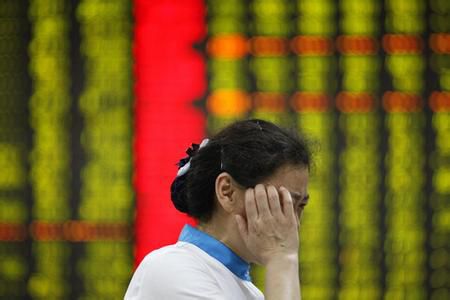
The New York Times reports: "As other countries look to China to take the lead in fighting global warming after President Trump's rejection of the Paris climate agreement, President Xi Jinping is pushing ahead with an ambitious plan to build the world's largest market for carbon emissions permits. The start of a national carbon trading market in China by late this year has been years in the making, but is now shaping up as Mr. Xi's big policy retort to Mr. Trump's decision to quit the Paris accord. The Chinese government said in a greenhouse gas policy guide released on Wednesday that the 2017 start was on track...Europe and California already use this cap-and-trade approach, which sets a ceiling for greenhouse-gas emissions and allows businesses to buy and sell emissions permits in the hope of unleashing market competition to save energy and embrace clean technology. But no one has tried this on the scale the government envisions for China, the world's leading source of carbon emissions.
The Wall Street Journal reports: "China is poised for a once-in-five-years conference this fall, where the next generation of Communist Party leadership will be chosen. Nothing dramatic can happen before that, right? Wrong. The winter of 2016 and spring of 2017 have already proven to be among the most volatile in memory—particularly in the bond market where yields shot higher, but also in stocks, which felt the heat from the broad regulatory crackdown on debt in April and May. The latest victims are China's highflying overseas deal makers Anbang, HNA, Fosun and Wanda, whose widespread borrowing throughout China's banking sector are now under investigation.
Foreign Policy comments: "Even as the Trump administration looks to strengthen government scrutiny of foreign investment, the panel responsible is stymied by a lack of staffing, according to multiple people familiar with the issue. The Committee on Foreign Investment in the United States, known by the acronym CFIUS, is charged with making sure that foreign acquisitions of American firms do not present a threat to U.S. national security. CFIUS, in theory, could be a valuable tool to curb Chinese investments in America, a central concern for the current White House. Yet those who have followed and worked with the committee see the CFIUS process faltering. 'I don't know who's in charge of CFIUS,' said Derek Scissors, a China expert American Enterprise Institute who regularly works for the committee. 'I haven't heard about CFIUS in any systematic fashion. I've seen no strategy or cohesion in the Trump administration' when it comes to running the committee.'"
- 2017-06-22 Exclusive: South Korea president calls on China's Xi to do more on North Korea nuclear program
- 2017-06-21 China stocks hit 18-month high on MSCI inclusion
- 2017-06-20 China tour agency says won’t take more US tourists to NKorea
- 2017-06-19 China, Russia held navy drill on Sunday: Xinhua
- 2017-06-18 China launches crackdown on academic fraud
- 2017-06-16 As Trump Bets on China’s Help on North Korea, Aides Ask: Is It Worth It?
- 2017-06-15 ‘China Panic’: Beijing Envoy Accuses Critics of Fearmongering
- 2017-06-14 The Disappearance of a Chinese Deal Maker
- 2017-06-13 Panama Establishes Ties With China, Further Isolating Taiwan
- 2017-06-12 Protests Opposing China’s Crackdown on Housing Speculation Swell
- CNBC China's latest company crackdown highlights some of the country's biggest problems
- Newsweek South China Sea: Chinese Military Planes Raise New Concerns of Conflict in Asia
- The New York Times Former State Department Security Officer Accused of Spying for China
- The Wall Street Journal Tesla Explores Possibility of Manufacturing Cars in China
- The Guardian In China's far west the 'perfect police state' is emerging
- The Washington Post Why is China suddenly leading the climate change effort? It's a business decision.
- CNBC In spat with Apple, Qualcomm looks to China for new growth
- Bloomberg China Takeover Tycoons' Cash Wall
- CNN Incoming Hong Kong leader says she defers to China on missing booksellers
- NPR China's Government Tightens Its Grip On Golf, Shuts Down Courses
- BBC News Online concern over Chinese 'human embroidery' trend
- Quartz Tesla is shifting gears in China by manufacturing its own cars there
- The Diplomat US Government Agent Charged With Giving China Classified Documents
- Forbes If China Turns Its Back On Liberal Reforms, What Does The Future Hold?
- TIME Chinese Authorities Crack Down on Streaming to Create a 'Cleaner Cyberspace'
- Quartz China's crackdown on the country's livestreaming craze is getting more intense
- Forbes Renewable Energy Employment: How China And The U.S. Measure Up